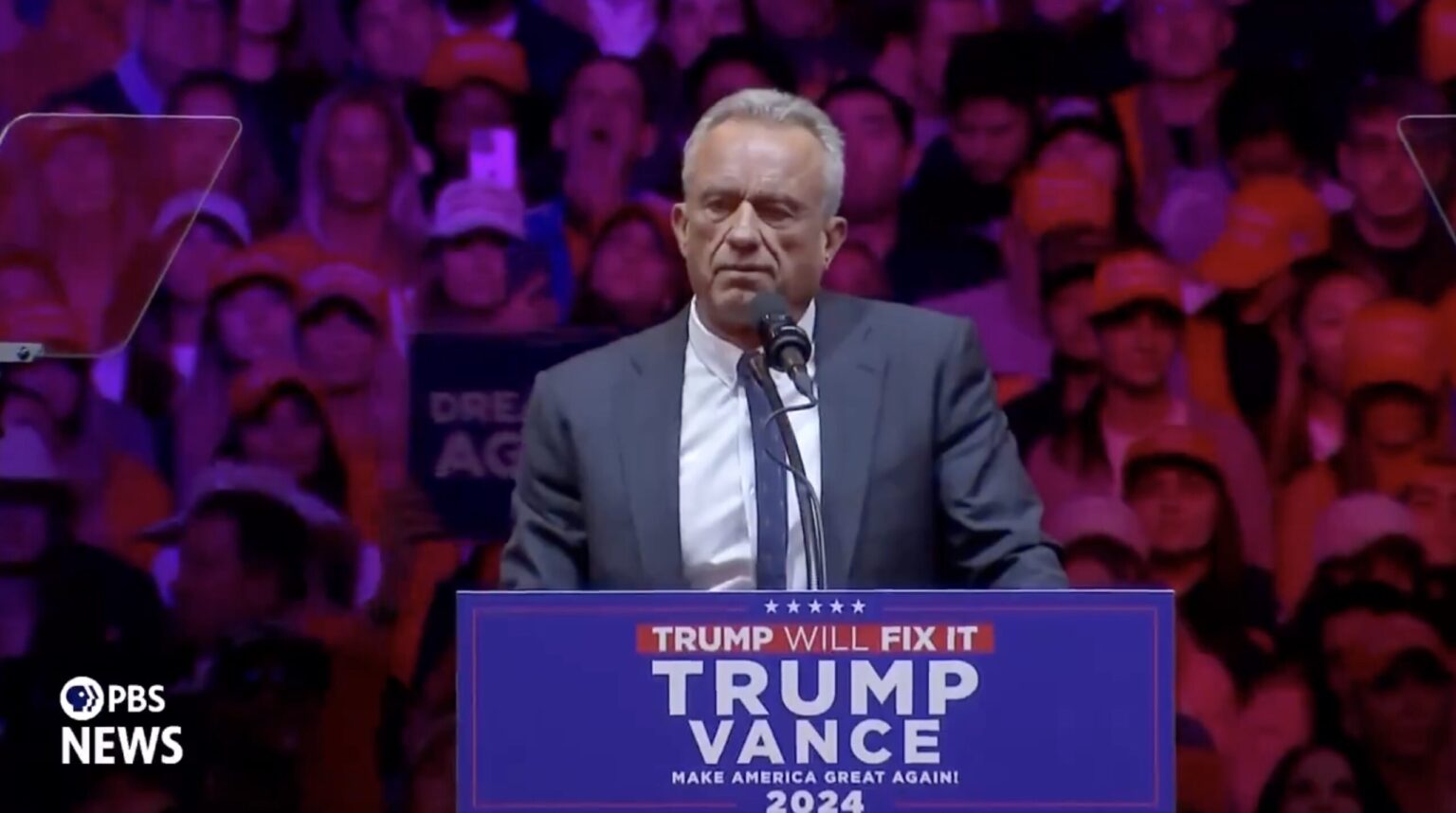Robert F. Kennedy Jr. energized a gathering of Trump supporters with a compelling address focusing on unity and populism, while also delivering a scathing critique of the current Democratic Party. Identifying himself as a product of the Kennedy legacy, he expressed regret that the Democratic Party, once an emblem of civil rights, peace, and the middle class, has transformed into an entity that he believes prioritizes war, division, and corporate interests. Kennedy passionately argued that the party has abandoned its historical commitment to the people, suggesting that the democratic ideals championed by early leaders like Martin Luther King Jr. and his own father and uncle have been lost.
Kennedy emphasized that the modern Democratic Party no longer embodies the values of the past, highlighting its newfound role as a proponent of war and corporate influence. He pointed out that the party’s agenda now reflects the wishes of Wall Street and significant corporate interests instead of addressing the needs of everyday Americans. This was a stark departure from the legacy of peace and constitutional rights historically associated with the party, which prioritized safeguarding freedoms, fighting censorship, protecting public health, and advocating for voting rights. According to Kennedy, this shift reveals a betrayal of the middle class and the principles that once defined the Democratic Party.
The speaker did not shy away from criticizing prominent Democratic figures, including Vice President Kamala Harris, whom he accused of adopting belligerent rhetoric influenced by neoconservative ideals. Kennedy condemned what he perceives as the party’s collaboration with entities that have led the U.S. into wars and undermined civil liberties, particularly through the Patriot Act, which he argued established a surveillance state. He contended that the party is complicit in a broader effort to squelch dissenting voices, including those of political candidates like himself and Donald Trump, raising concerns about the integrity of the electoral process itself.
Kennedy further condemned the Democratic Party’s alleged close ties to corporations and the military-industrial complex, suggesting that they have created a situation where the health of American citizens is in jeopardy. Citing alarming statistics, he lamented that the prevalence of chronic diseases has surged dramatically since the days of his uncle, former President John F. Kennedy, highlighting a crisis in public health exacerbated by corporate interests that prioritize profit over the well-being of citizens. His comments underscored the existential threat he believes this poses to American society, pointing to a declining pool of healthy individuals who could possibly serve in the military and stressing the urgent need for reform.
In a moment of outreach, Kennedy shared his recent conversation with Trump, where they found common ground on various issues despite their differences. Both men expressed a desire to end wars and restore civil liberties, urging a return to a government that prioritizes the Constitution and the interests of the American people. Kennedy’s rhetoric positioned him as a potential bridge between dissident factions within American politics, proposing that voters deserve a leader focused on healing the nation, addressing systemic corruption, and combating chronic disease.
Kennedy concluded his address by calling his audience to action, urging them to engage in the electoral process and advocate for leaders who would prioritize American values and its citizens’ health. He posed a series of rhetorical questions aimed at rallying his supporters around a vision of a healthier, more unified nation, calling on them to support Trump as a means of reclaiming what he views as lost American ideals. His address positioned him not only as a fervent critic of the Democratic Party but also as an advocate for a broader, inclusive political movement that seeks to return the country to its foundational principles of health, freedom, and unity.

